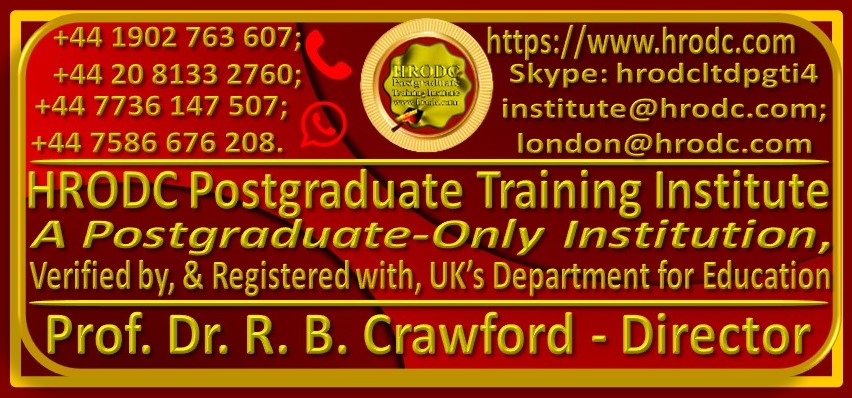-
-
Address key
issues in The Management of Quality.
-
Apply the
‘equity’ theory to work situation from a ‘differentiation perspective’,
rather than an ‘equality perspective’;
-
Appropriately define organisational structure;
-
Classify
plans;
-
Critically
appraise existing motivation strategy within their organisations,
identifying and addressing gaps;
-
Define
planning;
-
Demonstrate
an awareness of the fundamental issues associated with Organisational
design and their implications for effective organisational functioning;
-
Demonstrate
an awareness of the relationship between organisational structure and
leadership, on the one hand, and organisational flexibility, on the
other;
-
Demonstrate
an exceptional ability in planning organisational crucial activities;
-
Demonstrate
an understanding of the concept of motives and their value in
organisational and subsystem effectiveness;
-
-
Demonstrate
how popular motivation theories have contributed to our understanding of
worker behaviour;
-
Demonstrate
the need to balance the ‘individualist’ and ‘collectivist’ perspectives
in their application to motivation;
-
Demonstrate
their ability to encourage the type of superior-subordinate relationship
that will be conducive to organisational success;
-
Demonstrate
their appreciation of the need for a variance in intrinsic and extrinsic
values if motivation;
-
-
Design an
organisation adhering to the principles of horizontal and vertical
relationship;
-
Determine
the issues involved in operational plan;
-
Determine
the underlying concepts of Strategic Planning;
-
Differentiate between standing and single-use plan.
-
Discuss the
co-ordinating mechanism in a simple structure;
-
Discuss the
various components of operations management;
-
-
Discuss,
with confidence, the planning hierarchy;
-
-
Distinguish
between different organisational structures;
-
Distinguish
between fundamental types of structure;
-
Distinguish
between organismic and mechanistic structures;
-
Distinguish
between strategic planning and operational or business planning.
-
Distinguish
between the different sets of motivation theories, notably content,
process and reinforcement;
-
Distinguish
between the different types of matrix structures;
-
Draft a
strategic plan for their organisation incorporating therein the key
components.
-
Draft an
operational or business plan for their organisation.
-
Establish
the relationship between planning and organisational control.
-
Evaluate the
appropriateness of the application of particular theoretical aspects of
motivation to specific situations;
-
-
Explain the
approaches to organisational design;
-
Explain the
concept of informal plan.
-
-
-
-
Follow the
common trends in the popular motivation theories;
-
Formulate a
comprehensive motivation strategy;
-
Formulate a
workable motivation strategy;
-
Identify an
organisational structure from verbal description;
-
Identify
horizontal relationships in organisational design;
-
Identify the
various contingency factors in planning to prepare their organisation
for any unforeseen or unexpected circumstances;
-
Illustrate
communication channels in an organisational chart;
-
Illustrate
how the contingency approach to motivation might be applied to different
situations;
-
Illustrate
lines of authority in an organisational chart;
-
Illustrate
the effect of organisational structure on communication within an
organisation;
-
Illustrate
the strategic planning process.
-
Illustrate
their ability to design an appropriate organisational structure that
takes account of contingent internal and external environmental factors;
-
Indicate the
importance of vertical and horizontal relationships in organisational
design;
-
Indicate the
part that training and development play in worker motivation;
-
Know the
characteristics of planning.
-
Know the
concept of, and prepare a tactical plan for their organisation.
-
Know the
different purposes of planning.
-
Know the
right period for doing strategic planning.
-
Locate
performance related pay, productivity bonuses and other remuneration
inducement within existing motivation theory;
-
Manage the
motivation process, taking account of the differences in preferences and
expectation of workers;
-
Manage the
process of motivation, taking account of socio cultural and economic
differences;
-
Match the
organisational design approach with the level of development of the
organisation;
-
Name the
fundamental organisational structures and their variations;
-
-
Outline,
with examples, Mintzberg’s ‘Bases of Co-ordinating’;
-
-
Prepare a
plan incorporating all the necessary requirements;
-
-
Provide
examples of different bases of divisional structure;
-
Provide the
bases for structural contingencies;
-
Recommend
the most appropriate structure for an organisation, taking contingent
factors into account;
-
Show the
vertical relationships in an organisational chart;
-
Suggest the
approaches which might be adopted in designing an organisation;
-
Translate
motivation theory into practice;
-
Translate
the positive and negative factors of particular types of structure to
the design of an organisation which will enhance the effectiveness of an
enterprise;
-
Undertake
tests to check the quality of their organisation’s strategic plan;
-
Use the
different strategic planning tools in preparing their organisation’s
strategic plan.
















